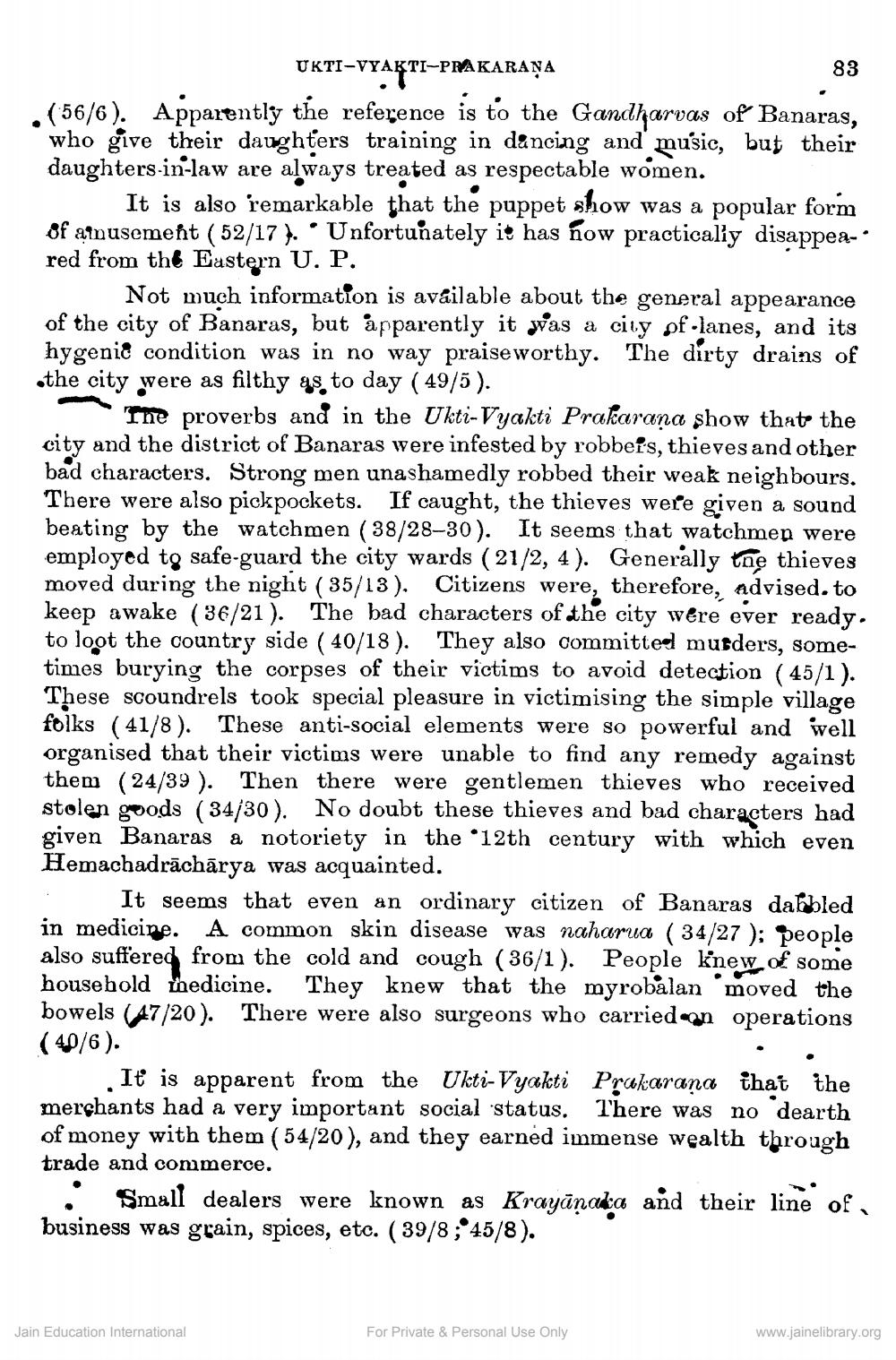________________
UKTI-VYAKTI-PRAKARANA
83 .(56/6). Apparently the reference is to the Gandharvas of Banaras,
who give their daughters training in dancing and music, but their daughters-in-law are always treated as respectable women.
It is also remarkable that the puppet show was a popular form of amusement ( 52/17). Unfortunately it has now practically disappeared from the Eastern U. P.
Not much information is available about the general appearance of the city of Banaras, but apparently it was a city of lanes, and its hygenic condition was in no way praiseworthy. The dirty drains of the city were as filthy as, to day ( 49/5).
The proverbs and in the Ukti-Vyakti Prakarana show that the city and the district of Banaras were infested by robbers, thieves and other bad characters. Strong men unashamedly robbed their weak neighbours. There were also pickpockets. If caught, the thieves were given a sound beating by the watchmen (38/28-30). It seems that watchmen were employed to safe-guard the city wards (21/2, 4). Generally tae thieves moved during the night ( 35/13). Citizens were, therefore, advised. to keep awake (36/21). The bad characters of the city were ever ready. to loot the country side ( 40/18). They also committed musders, sometimes burying the corpses of their victims to avoid detection ( 45/1). These scoundrels took special pleasure in victimising the simple village folks (41/8). These anti-social elements were so powerful and well organised that their victims were unable to find any remedy against them (24/39). Then there were gentlemen thieves who received stolen goods ( 34/30). No doubt these thieves and bad characters had given Banaras à notoriety in the '12th century with which even Hemachadrāchārya was acquainted.
It seems that even an ordinary citizen of Banaras dabbled in medicine. A common skin disease was naharua ( 34/27 ); people also suffered from the cold and cough (36/1). People knew of some household medicine. They knew that the myrobalan moved the bowels (47/20). There were also surgeons who carried an operations (40/6).
It is apparent from the Ukti-Vyakti Prakarana ihat the merchants had a very important social status. There was no 'dearth of money with them ( 54/20), and they earned immense wealth through trade and commerce.
i Small dealers were known as Krayānaka and their line of business was grain, spices, etc. (39/8;-45/8).
Jain Education International
For Private & Personal Use Only
www.jainelibrary.org




